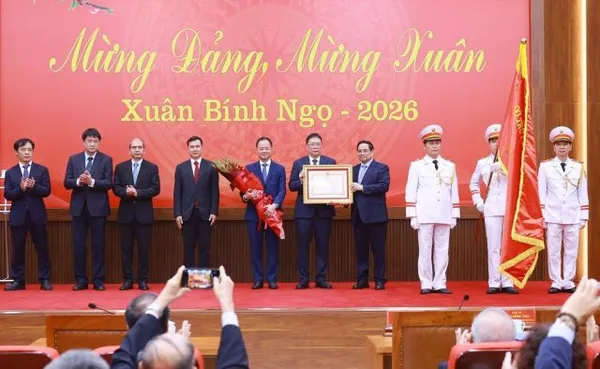 Economy
Economy

 |
| Headquarters of the State Bank of Vietnam (SBV). The depreciation of the Vietnamese đồng is at the same level as that of other currencies in the region and the world. Photo sbv.gov.vn |
HÀ NỘI — The State Bank of Vietnam (SBV) has denounced a recent rumour about changes in the SBV’s exchange rate management as inaccurate and inconsistent with the Government's goal for market and macro-economic stability.
Director of the SBV’s Monetary Policy Department Phạm Chí Quang warned the rumour has created a psychological instability in the market, noting that businesses and people need to be cautious about inaccurate rumours.
According to Quang, the recent depreciation of the Vietnamese đồng against the US dollar is due to the greenback strengthening in the international market and increasing demand for dollars in the domestic market in the wake of rising import demand.
However, he noted, the depreciation of the Vietnamese đồng is at the same level as that of other currencies in the region and the world. The đồng has so far depreciated by about 5 per cent compared to the dollar. The rate is similar to the devaluation trend of regional currencies, such as the Taiwan dollar (-5.06 per cent); Thai baht (-6.31 per cent); Korean won (-5.66 per cent); Japanese yen (-10.87 per cent); Indonesian rupiah (-3.87 per cent); Philippine peso (-4.82 per cent); and Chinese yuan (-2.04 per cent).
“With the current central exchange rate management mechanism and a margin of +/-5 per cent, the foreign exchange rate has enough room for flexible developments. Thus, some recent information about changes in the SBV’s exchange rate management is inaccurate and inconsistent with the Government's goal of the market and macro-economic stability,” Quang noted.
Though the international situation is still challenging and unpredictable, pressure on the foreign exchange rate will ease thanks to a solid macro-economic and foreign relations foundation as well as the US Federal Reserve (Fed)’s expectation of reducing interest rates from the end of this year.
All difficulties in the domestic foreign currency market are only short-term, because in the near future, with a positive recovery of exports, the market's foreign currency supply will increase.
Meanwhile, as businesses have recently increased their foreign currency forward purchases, demand for foreign currency in the future will decrease. Therefore, the balance of foreign currency supply and demand is likely to improve more positively in the weeks to come.
The international financial community also maintains its view that the Fed will likely cut interest rates by the end of 2024, thereby reducing devaluation pressure on world currencies, including the đồng.
“Based on the basic domestic and foreign factors mentioned above, many international organisations predict the đồng can appreciate again when these basic factors are gradually realised in the near future,” Quang said.
He said in the weeks to come, the SBV will continue to manage the exchange rate flexibly, in accordance with market developments.
The central bank will simultaneously implement suitable monetary policy tools, including the sale of the dollar, to intervene and support market liquidity to meet legitimate dollar needs. This will contribute to stabilising market psychology and the macroeconomy as well as controlling inflation, Quang said. — VNS

_med.jpg)


